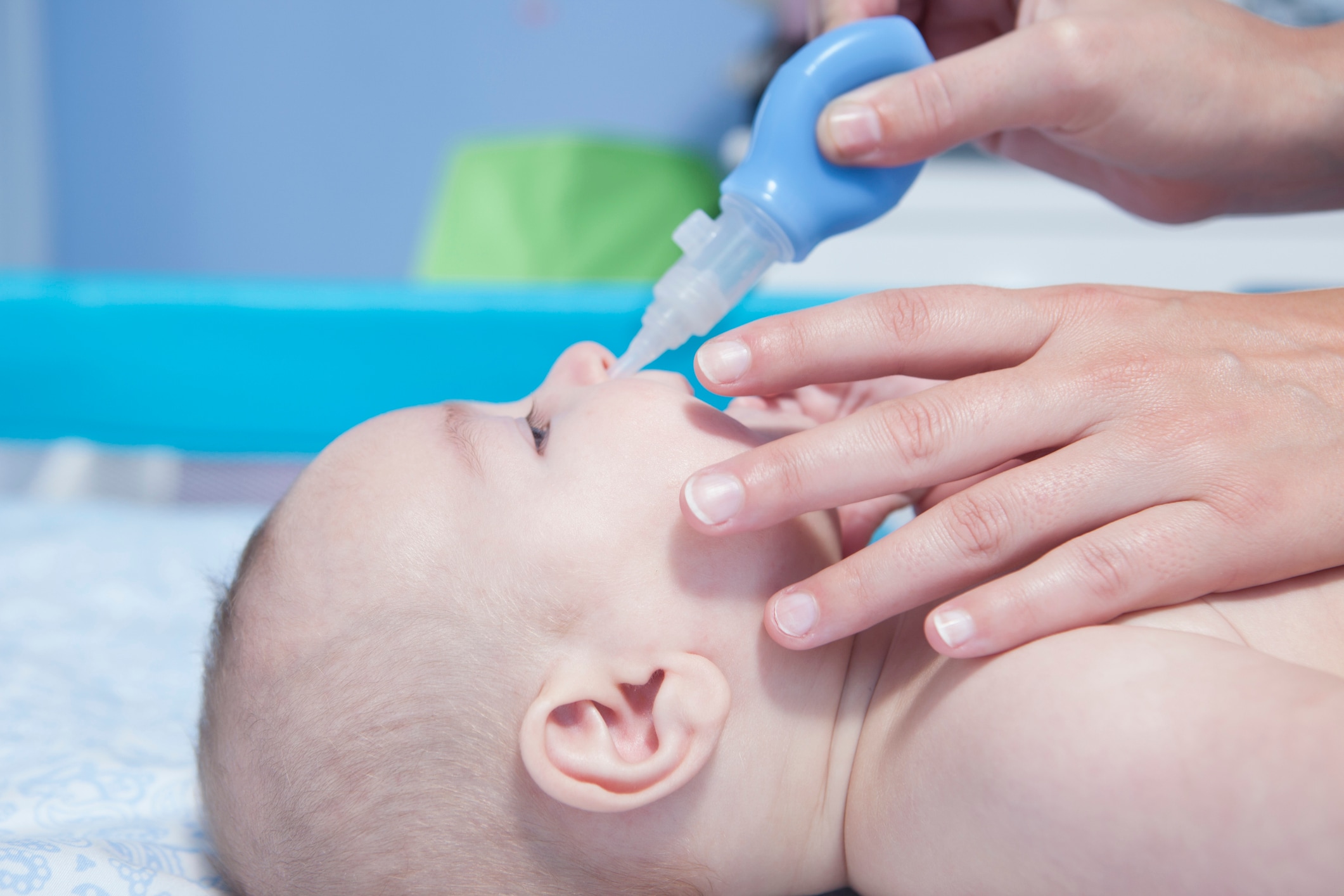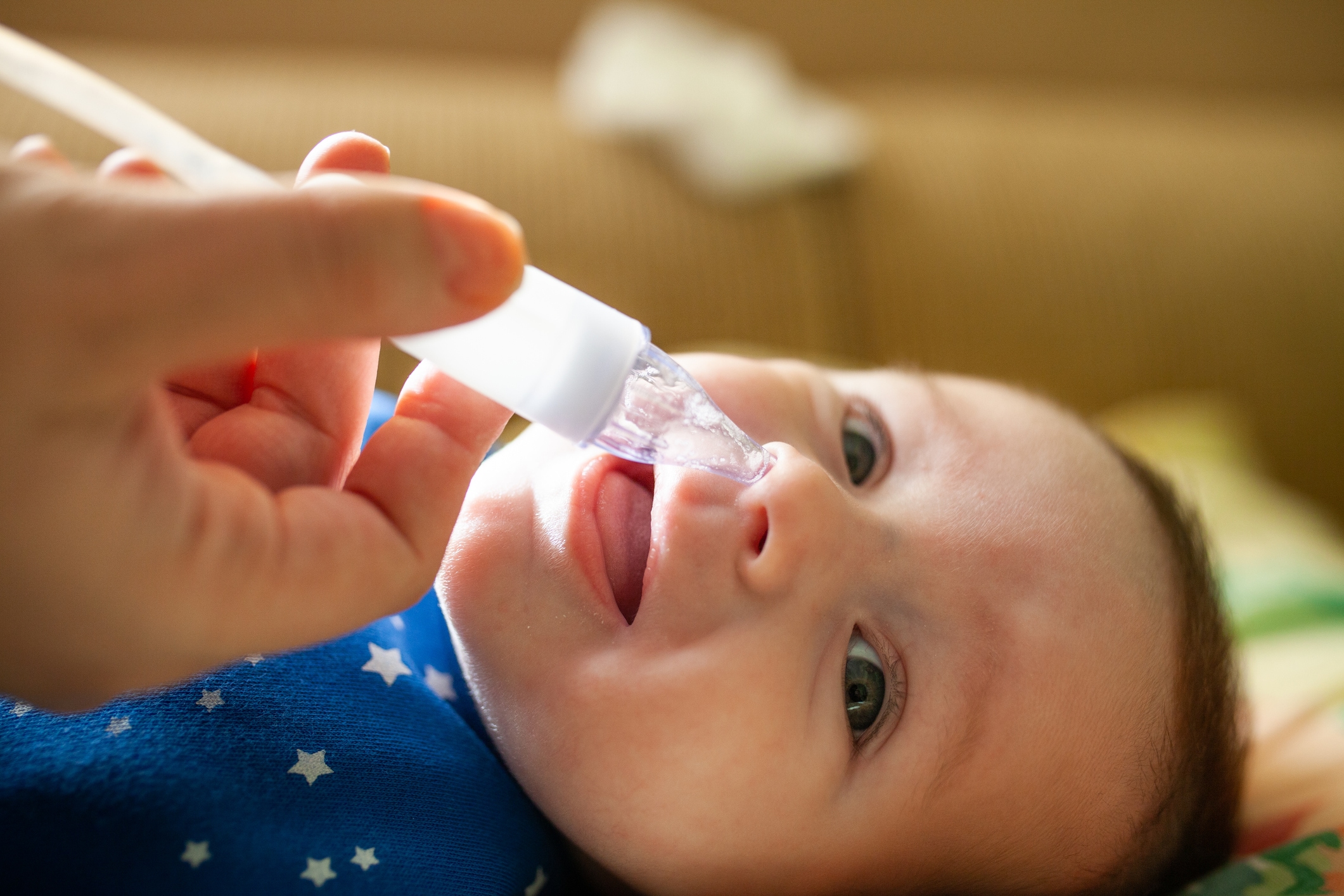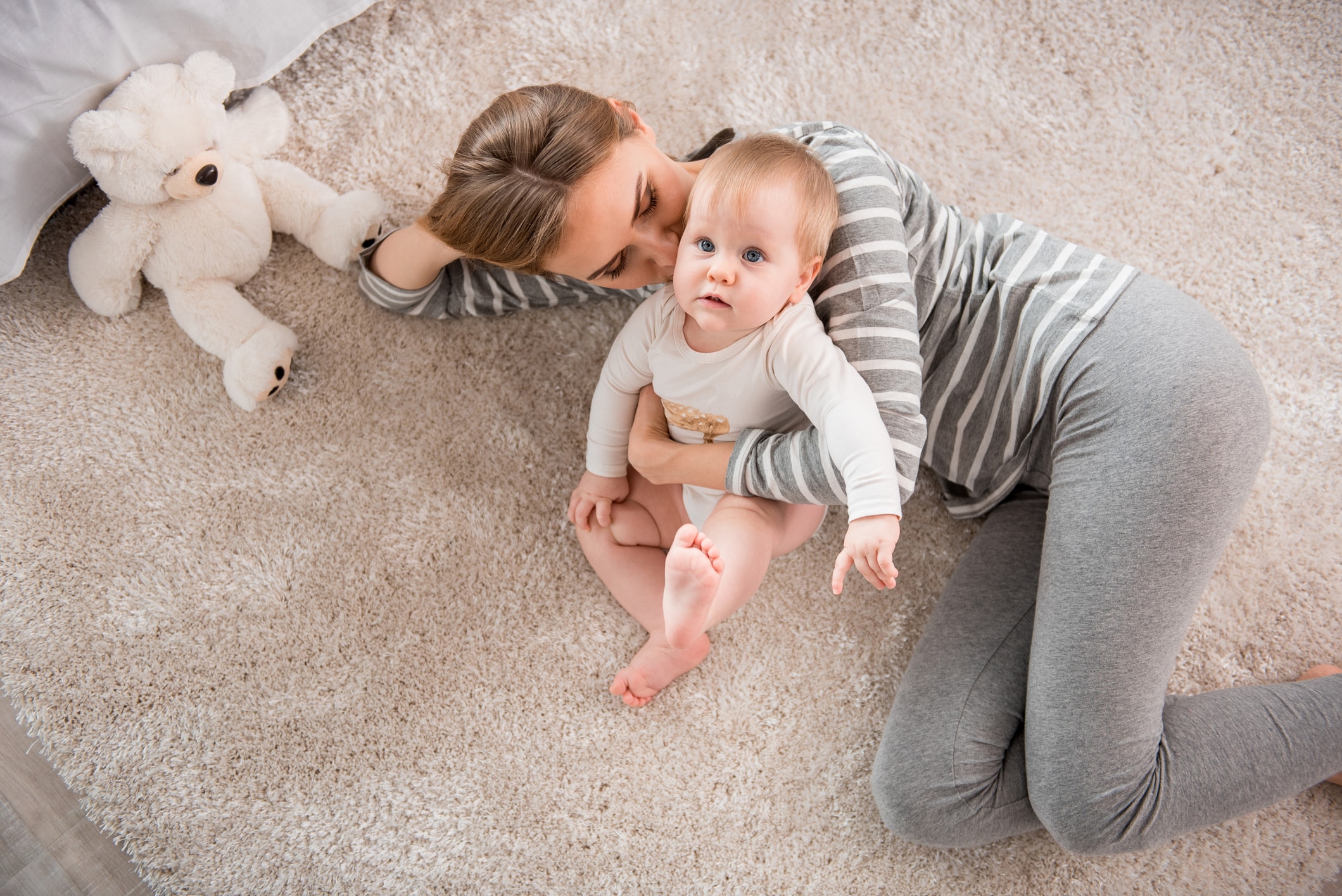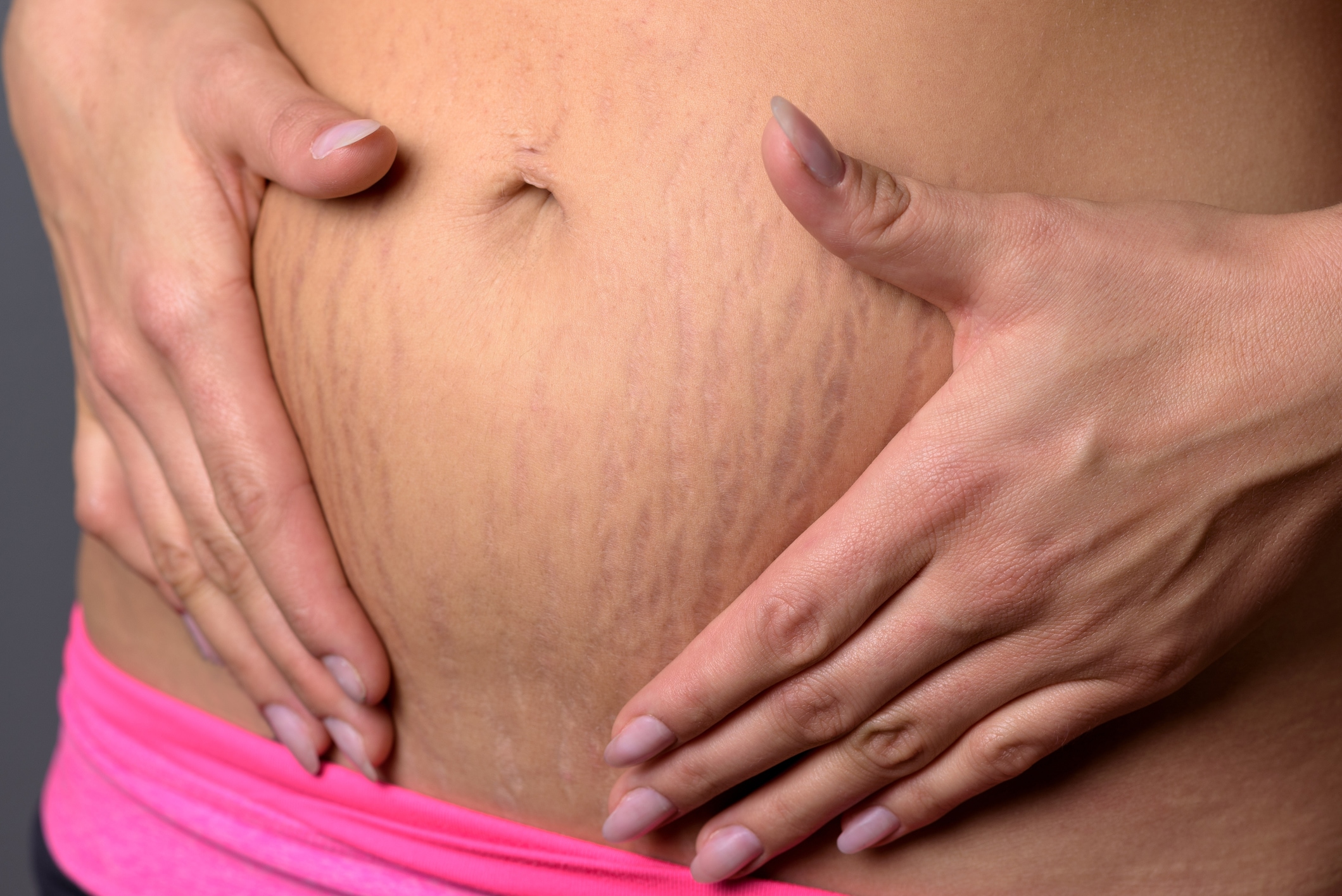The newborn phase is full of delightful surprises — including, well, smelly ones. Yes, no matter how adorable, all babies burp and fart pretty regularly. And new parents might have questions about all those aromas coming from their sweet little one’s body,finding yourself worrying that your newborn has gas that is much too potent, or conversely, that your baby isn’t burping enough.
The good news: “Gas is a normal part of a newborn’s life and routine,” says Dr. Lauren Lazar, a pediatric gastroenterologist at Children’s Health in Dallas and Assistant Professor at UT Southwestern Medical Center, who clarifies that you can anticipate your baby to be gassy for the first few months of life, generally up to about 3 or 4 months — at times, even longer (potentially up to 6 months), depending on what the cause of their gassiness is. For example, if they sensitivities to formula or their parent’s milk that aren’t addressed right away.
But how much gas is OK? Should your newborn be burping after every meal? What if they don’t ever seem to burp at all? And when does gas potentially mean something else is amiss? Read on for expert advice on these questions and more.
What causes gas in a newborn?
While adults experience gas for a wide range of reasons including drinking carbonated beverages or eating too many beans, newborn gas is typically the result of just a few different factors. Among them? Swallowing too much air, different aspects of their diet (or the breastfeeding/chestfeeding parent’s diet), as well as digestive immaturity. The next time your baby farts or burps, see if it directly correlates to any of the following.
“A gassy baby tends to come from taking in extra air while feeding, crying or sucking on a pacifier. It is most common during their first four months after which it generally subsides.”
— Dr. Lauren Lazar, a pediatric gastroenterologist at Children’s Health in Dallas
Swallowing air
Kids and adults know how to suck in air to elicit a burp, but babies swallow air inadvertently all the time, leading them to be gassier overall.
“A gassy baby tends to come from taking in extra air while feeding, crying or sucking on a pacifier,” says Lazar. “It is most common during their first four months after which it generally subsides.”
Swallowing air can also happen due to the design of the baby bottle as well as due to improper latch. Trying different bottles with air vents or working with a lactation consultant (to address latch issues including lip and tongue ties) can be helpful in these situations.
“It helps if you’re able to feed before a baby gets too hungry because gulping milk or formula as well as gasps during crying contribute to the excess air intake,” adds Lazar. Hungry babies generally show signs like moving their fists to their mouths (and even sucking on them), smacking their lips, opening and closing their mouths, and turning their heads to seek out a nipple. If they’ve shown some of these signs and begun to cry, they are too hungry.
A newborn’s diet
Speaking of feedings, you might wonder, “Why is my breastfed baby so gassy?” or even “Is my baby’s formula responsible for all those burps and farts?” But is there a difference in terms of what they are fed?
“There is no difference between breastfed versus formula fed babies in terms of gassiness,” says Dr. Alexis Monique Javier, a pediatrician with Children’s Memorial Hermann Pediatrics. “One is not more gassy than the other overall.”
There are, however, some things that may be causing a bit more gas than necessary. For example, Javier says one common cause of gas is when parents forget to wait for the bubbles to settle in their baby’s powder-and-water mixed formula.
“Some babies don’t tolerate certain formulas due to various reasons,” says Javier. For example, they may have congenital lactase deficiency (a condition that causes the baby to be born without the enzyme one needs to digest lactose, the main sugar in cow’s milk) or galactosemia (a similar condition, except this time they can’t digest galactose, which is also found in cow’s milk). If you’ve got a particularly gassy newborn on your hands after formula feeding, it might be time to see if they prefer or tolerate a different type or brand.
“It is also possible that certain intolerances can lead to gas as well,” adds Lazar. “It is important to assess this possibility with your pediatrician or pediatric gastroenterologist.”
But it’s not just formula that causes gas. Parents who breastfeed or chestfeed need to realize their own diets may also affect their baby and how gassy they are.
“Trying different foods may help alleviate pain,” says Lazar. Some foods that may potentially cause breastfed/chestfed babies gas include garlic, onions, beans, spinach, kale and spicy foods. This is because many of these foods are high in things like raffinose (a complex sugar that humans cannot digest), contain lots of fiber (which causes bloating and gas in the body) or are foods that can cause sensitivity issues leading to gas. Anything that causes the parent gas will therefore often cause the baby gas as well.
“There is no difference between breastfed versus formula fed babies in terms of gassiness. One is not more gassy than the other overall.”
— Dr. Alexis Monique Javier, a pediatrician with Children’s Memorial Hermann Pediatrics
Digestive and gastrointestinal immaturity
Additionally, parents should keep in mind that digestive immaturity is a very real thing.
“Just as infants are learning to do so many things after they are born, their intestines are adapting to life outside the womb. The intestines are working to establish their normal bacterial flora, which aid in digestion, and what it is like to move food through the GI tract,” says Lazar.
Essentially, newborns need the proper amount of gut flora to process and break down breastmilk and/or formula in their gastrointestinal system. Without it, gas (and other issues like bloating, constipation, and diarrhea) can also occur.
Premature babies also struggle with immature gastrointestinal tracts (which includes issues like lacking coordination skills for sucking and swallowing, as well as peristalsis), so this can also cause your baby to be gassier.
What is considered “normal” gas in newborns?
Again, it’s perfectly typical for newborns to burp and fart several times a day, especially after feedings.
“Some signs of normal newborn gassiness are babies that don’t seem to be irritated, in pain or bothered by their gas and are otherwise growing and developing well without any other symptoms,” says Javier.
While they may show some slight fussiness just before they pass gas, if they seem relieved afterward, your baby is doing just fine.
What are some abnormal gas symptoms in newborns?
“Newborn gas is expected and isn’t something to worry about on its own,” adds Lazar. That said, you’ll want to keep an eye out for other symptoms that might warrant further exploration. Our experts recommend keeping an eye on the following signs in your gassy newborn:
- Fussing a lot or crying when passing gas (similar to signs of colic—an intense, ongoing, unconsolable period of crying in an infant for no apparent reason).
- Fussing or crying after feedings (whether they pass gas or not).
- Showing other physical signs that they are in pain or irritated by their gas (such as grimacing or kicking/pulling in their legs)
- Refusing feedings.
- Abdominal distention.
- A lack of passing gas (especially after feedings when they typically do).
If your baby seems to be struggling a bit with gas, you might try warm baths, massage techniques and a variety of other techniques to help a gassy baby.
When should you seek out a pediatrician?
While abnormal gas symptoms might warrant a call to your pediatrician, our experts say other symptoms are severe enough that you should seek immediate help from a health care provider:
- A sudden increase or decrease in dirty diapers
- Excessive spit up or vomiting
- Blood in the stool
- Not gaining weight regularly (failure to thrive)
- Being more lethargic and sleepy than usual
- Signs of dehydration (such as only having 3 or fewer wet diapers within 24 hours)
- Fever (anything over 100.4˚F)
- Your baby is crying inconsolably
- Other extreme changes in behavior
- Sudden symptoms of an allergic reaction, like a rash, hives, swelling or difficulty breathing
“Keep a special eye out for these symptoms if you’re introducing them to a new formula or if you have changed your diet and are breastfeeding,” says Lazar.
“If terrible gas is preventing your baby from living a happy baby life, then you should absolutely consult your child’s doctor for resources and support.”
— Lauren Lazar
The bottom line on what to know about a gassy newborn
Overall, gassy newborns are a dime a dozen — and despite the smells — nothing to worry over. But knowing the signs and symptoms of abnormal gas (especially when it may indicate other issues) is key.
That said, parents should always feel free to seek help from their pediatrician or another health care provider if they feel they need extra help with their gassy newborn, notes Lazar. She concludes, “If terrible gas is preventing your baby from living a happy baby life, then you should absolutely consult your child’s doctor for resources and support.”





